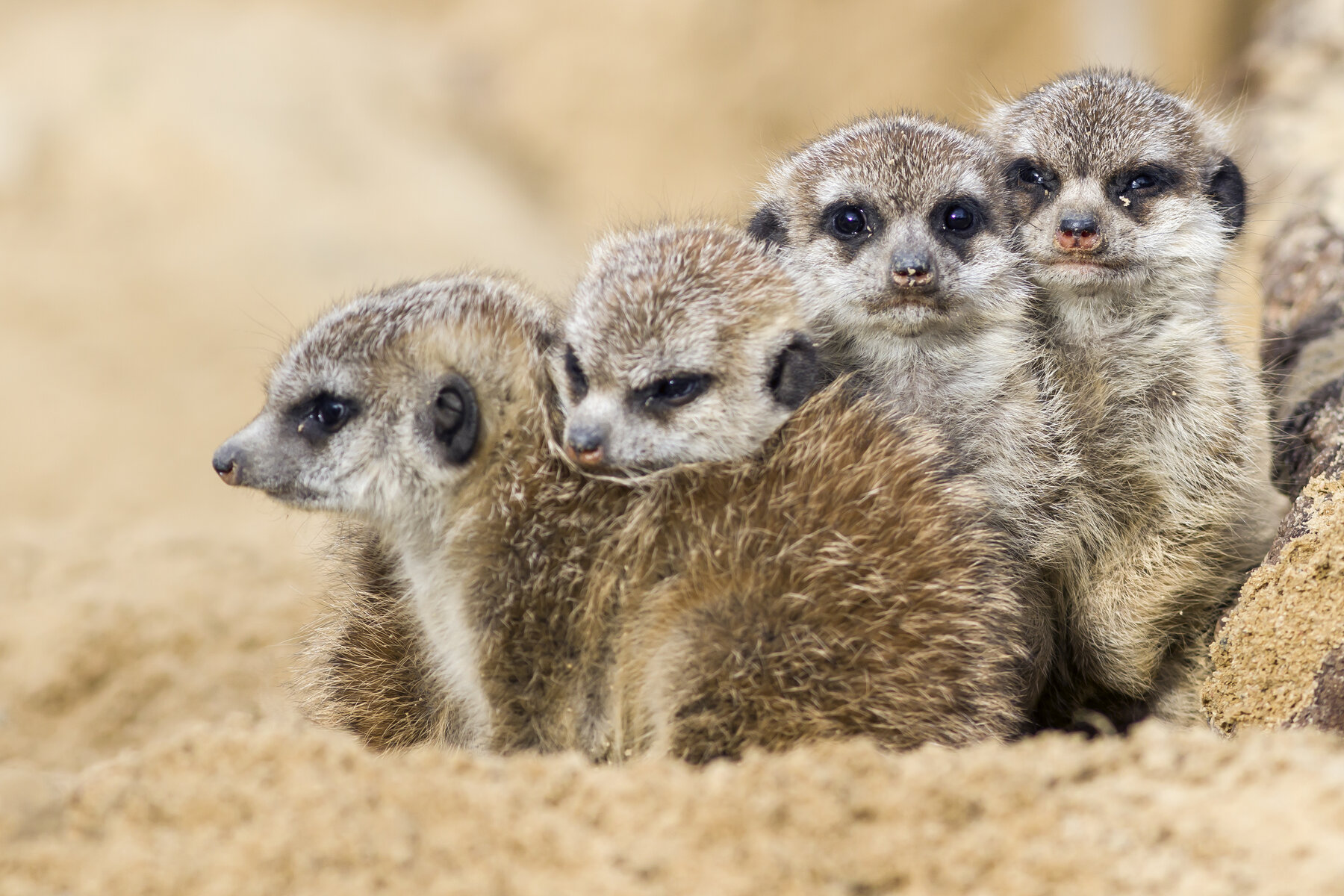
Slender-Tailed Meerkat
Suricata suricatta
Meerkats, a mongoose species, live in large groups of up to 30 animals and are native to Namibia, Angola, parts of Botswana and South Africa. They set up camp in underground caves and go on the lookout for food in arid lands during the day.
Sociable everyday life
The meerkat, which is primarily active during the day, not only likes to enjoy a swim in the sun. They dig burrows up to three metres deep into the earth for the whole family or hunt spiders, beetles and other insects out in the sun. The group is lead by a couple, consisting of the Alpha male and the Alpha female.
Characteristics
- Origin
Southern Africa
- Habitat
open dry areas and savannahs
- Diet
The meerkat’s diet consists of insects, eggs, snakes, scorpions and birds.
- Status
No exact inventory data available
- Size
24,5 to 29 cm
- Weight
620 to 970 g
- Gestation period
approx. 2.5 months
- Achievable age
up to 10 years in the wild, up to 12 years in human care
Threat Categories of IUCN


Everything at a glance
One of the meerkats from the group always stands guard. This enables the rest of the family to go on the prowl in peace or lie around lazily in the sun. As enemies like jackals or birds of prey approach, the mini-watchman lets off a shrill whistling sound and the rest of the family sweeps into the burrows.
Did you know that ...
...meerkats can close their ears to prevent sand getting in while digging,
...meerkat burrows have up to 200 entrances,
...and only the alpha pair produce young, but the task of rearing is shared by the group?

